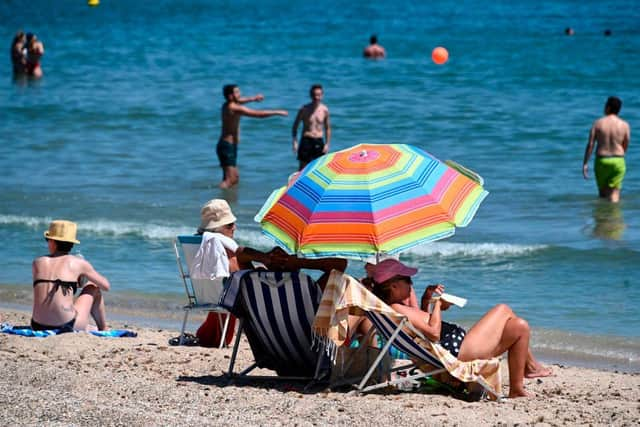France travel advice: latest guidance as country goes into lockdown and raises terror alert level to maximum following Nice attack
It’s fair to say that France has been a country in turmoil in recent days.
Not only has the country been rocked by multiple terror attacks, but the entire nation is embarking on a second national lockdown in response to a surge in coronavirus cases, the dreaded “second wave”.
Advertisement
Hide AdAdvertisement
Hide AdAs France locks down again, how does that affect Britons’ plans of travelling across the Channel?


Here’s everything you need to know.
What are the lockdown restrictions in France?
People have been ordered to stay at home except for essential work or medical reasons, as President Emmanuel Macron said the country risked being "overwhelmed by a second wave that no doubt will be harder than the first".
Non-essential businesses, such as restaurants and bars, will close, but schools and factories will remain open. These restrictions will remain in place until at least 1 December.
The French government has introduced curfews in large parts of the country, where the virus is in high circulation. In these regions, people are required to remain at home from 9pm-6am.
Outings within the curfew hours are only permitted in certain specified circumstances and authorised with a certificate.
Wearing face masks in enclosed public spaces remains compulsory, and local authorities in an increasing number of cities and regions have extended this to also include outdoor public spaces. Failure to comply with these restrictions may result in a fine.
What's the FCDO travel advice for France?
While a travel ban is in place between regions, national borders with counties inside the Schengen Area remain open – this includes the UK.
Arrivals by sea and air routes need to complete a ‘sworn statement’ self-certifying they are not suffering from symptoms associated with Covid-19 and have not been in contact with confirmed cases in the preceding fortnight.
Advertisement
Hide AdAdvertisement
Hide AdThere is no quarantine requirement for arrivals from the UK, though this is advice is subject to change and is regularly reviewed.
For more information on travelling to France, head to the FCDO’s website
Do I have to self-isolate when I return to the UK?
France is not currently included in the government’s travel corridor list, which means that travellers returning to the UK from the country having to self-isolate for 14 days.
When you arrive in the UK, you must travel directly to the place you are staying and not leave until 14 days have passed since you were last in a non-exempt country or territory.
The 14-day period will start from the day after you leave France. This is because it can take up to 14 days for coronavirus symptoms to appear.
What's the risk of terrorism in France?
According to the FCDO, terrorists are “very likely” to try to carry out attacks in France.
Attacks could be indiscriminate including in places frequented by foreign nationals such as shopping centres, entertainment establishments, public transport and places of worship.
Methods of attack have included knife attacks, shootings, bombings, as well as vehicle attacks. Due to ongoing threats to France by Islamist terrorist groups, the French government has warned the public to be extra vigilant.
